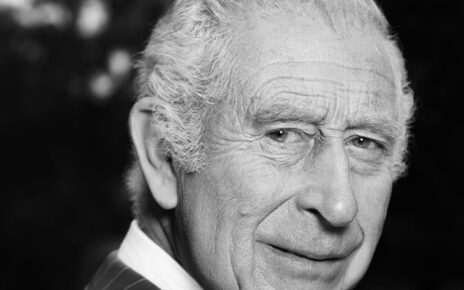In late summer 2020, “The Vow” emerged as a creepily potent hit docuseries, which grew virally as it rolled out. Plunging deep within little-understood “self-help group”-turned-cult NXIVM to examine the hold leader Keith Raniere had over his acolytes, the documentary series excelled when depicted sympathetic people in situations the average viewer likely could not imagine. How had these women allowed things to get so out of control that they’d agreed to be branded, or to starve themselves, or to voluntarily hand over compromising materials for potential blackmail? “The Vow” had no hard answers, but it was exacting and thorough in posing the questions.
Almost too thorough, perhaps: Its new follow-up, “The Vow, Part Two,” is three episodes shorter, and has a tighter focus that benefits its storytelling. Having established NXIVM’s methods of exerting control over women in the first go-round, director Jehane Noujaim (without Karin Amer this time) examines the legal repercussions for Raniere, who was charged with crimes including sex trafficking and conspiracy in a 2019 trial. The process of trying Raniere brings new revelations about NXIVM methods to light, and spurs testimony to Noujaim’s camera from sources including co-founder Nancy Salzman and various ardent Raniere defenders. As storytelling, this is crisper and cleaner than “The Vow’s” first iteration; as psychological portrait, little in the nonfiction space of late matches its acuity.
Salzman emerges as the star witness in this series, precisely because of her imperfections as an anti-Raniere messenger. Salzman can seem discomfitingly eager to share her truth on-camera, as though endless disclosure of her perspective would exonerate her; among her frustrations are that Raniere’s predations with the internal cabal “DOS” within NXIVM have overshadowed the good work the broader group did with its self-help curriculum, which may not be a tragedy that resonates as deeply with viewers.
But all of this lends a sense of someone who is deeply, fallibly human, existing in vibrant opposition to a group whose core methods of deprivation and impersonal brutality seem anything but. We also spend significant time with various defenders of Raniere, including Michele Hatchette (with whom I, in the interest of disclosure, was friendly when we attended the same high school in the early 2000s, and with whom I had a brief conversation about a self-help group with which she was involved after a chance meeting in 2014). Hatchette and Nicki Clyne are here to present the case for Raniere’s innocence, and arrive at proving his effectiveness: Both deflect the best-established, consensus views of NXIVM cruelty with a sort of expert vagueness: “Sex was not the focus of anything,” Clyne says at one point. “People are so obsessed with sex. It was also a walking group. It was also a go-for-coffee group.”
People are obsessed with sex because, unlike coffee dates, it can be weaponized; to those closest to the center of NXIVM, though, a weapon may have looked a great deal more like a tool. (We later meet women whose self-professed experience of NXIVM was characterized more by abuse than by walking to get lattes.) Among the remarkably effective undercurrents of “The Vow, Part Two” is the mutability of truth, not simply shifting slightly according to perspective but dramatically inverting. One sincerely believes that, for Hatchette and Clyne, a line of argument set forth by Raniere’s defense attorney, that calling women branded by NXIVM “victims” is antifeminist, is sincere. (That attorney is shown telling a skeptical Megyn Kelly, then of NBC News, that “when men [get branded], they’re Marines.” And Salzman, for all that her eyes have been opened to aspects of Raniere’s crimes, does believe that others of NXIVM’s methods helped alleviate the symptoms of Tourette syndrome, something a disclaimer at the top of one episode disavows.
In all, this series builds upon and improves upon the work the franchise had already done — and stands out, too. There is no shortage of documentary footage being marshalled into projects that have a vaguely snarky or sarcastic view of its subjects; I’d cite the very fun and watchable 2021 “LuLaRich,” about a multi-level marketing scheme, as but one example. Even in documenting people whose vision and goals are opposed to those of the documentary, there’s a compassion and level of thought at work, here; a scene in which Raniere defenders dance outside the jail holding him is shot through not with snideness but with a sort of tender-hearted fascination. The first tragedy of NXIVM — the first many tragedies, perhaps — was in the harm it did to the women it scarred and starved and isolated from themselves. The next, harder story is of the women who recall it with fondness.
“The Vow, Part Two” debuts Monday, October 17 at 9 p.m. ET/PT on HBO, with new episodes following weekly.
Read More About:
Source: Read Full Article
